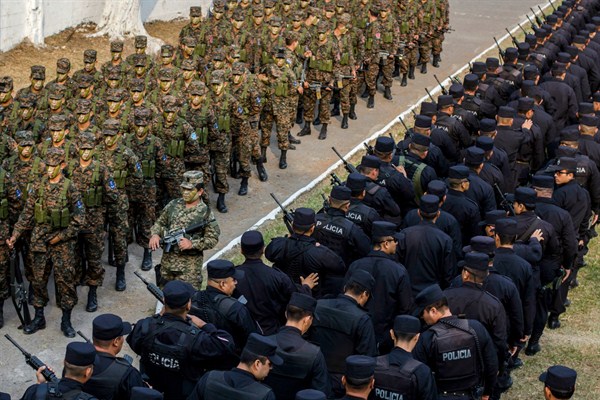Last week, El Salvador’s president, Salvador Sanchez Ceren, celebrated two years in office. El Faro, the country’s premier online investigative news source, acknowledged the milestone with a feature titled, “Seven Years of Governing Like ARENA.” It was a pointed commentary on the policy similarities between Sanchez Ceren’s left-wing Farabundo Marti National Liberation Front (FMLN) and its rival party, the right-wing Nationalist Republican Alliance (ARENA), which were also foes on the battlefield during El Salvador’s 12-year civil war.
Since assuming office, Sanchez Ceren, a former leftist guerrilla commander, has continued the hard-line policies on gangs that go back to ARENA-led governments in the 2000s, in an effort to stem the rising tide of violence in the country. But critics are increasingly wary of his administration’s so-called war on gangs, which has recently been linked to state abuses and extrajudicial killings.
El Salvador has been suffering a prolonged crime wave since the civil war ended in 1992, though elevated levels of societal violence existed before the conflict. The country’s new police force, created by the peace accords, was underfunded and easily overwhelmed. Despite the fact that the peace deal separated the police and military, presidents have routinely relied on the military to supplement police patrols and bridge the security gap. But that created a dangerous precedent in a country where the military and paramilitary security forces routinely targeted civilians during the civil war.

